How To Save For a Holiday and Manage Your Travel Costs
Discover our travel community’s best 20 tips on saving for a holiday and how to spend wisely on your next travel adventure.
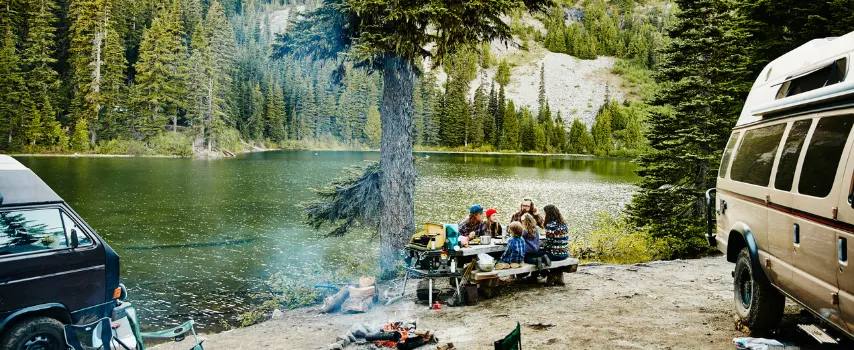
Source: Getty
How would you holiday if you had a limitless budget? Would you indulge in first-class flights, 5-star hotels, fine-dining experiences, and make your way to exotic locations whenever you please?
While it’s certainly nice to dream of a life like this, unfortunately, it isn’t a reality for most of us – and many of us have to consider how to save for a holiday well before we go on one.
Saving for travel may not sound all that glamorous, but planning and saving diligently may help you gather enough funds to get to your dream destination and cover everything on your to-do list.
Plus, if you’re prepared to be extra thrifty, you could even stretch your funds and sneak in a few extra activities or experiences during your holiday too.
Want to learn how to save for a holiday, limit your travel costs, and get the best value for money while travelling? Keep reading for 20 top travel tips straight from our community of well-travelled Aussies.
Skip ahead to read our best travel tips on:
- Budgeting for a holiday
- Saving for a holiday
- Making use of holiday saving hacks
- Reducing accommodation costs
- Stretching your meal budget
Travel saving tip: Create a budget early on
Building a holiday budget may not be the most enjoyable way to spend your time off… but doing this early on in your holiday planning process can help you better understand your travel costs – and help you stick to your holiday budget while you’re on your trip.
So, once you’ve decided on your ideal destination, get out your laptop and research how much it will cost to travel to your destination, stay there, eat there, participate in activities or experiences, and protect your trip with travel insurance.
Once you’ve worked through this list and noted down the prices in a spreadsheet or travel budgeting app, you’ll know exactly how much you’ll need to save to afford your ideal holiday.
Don’t forget your budget should be realistic, though. When mapping out your travel costs, think about your travel style, including the type of accommodation you prefer to stay in and the activities and experiences you want to do, then prioritise them as you log them in your budget tracker.
This will help ensure you’re not spending more than you want to, find areas where you can save, and help you prioritise which elements of your trip you want to book and pay for first.
From there, it’s a matter of putting funds away regularly—perhaps in a separate holiday savings account – till you’ve reached your savings goal.
Want more travel budgeting tips? Here, our community of travellers reveal the advice that may help you with budgeting and saving for a holiday.
Travel budget tip #1:
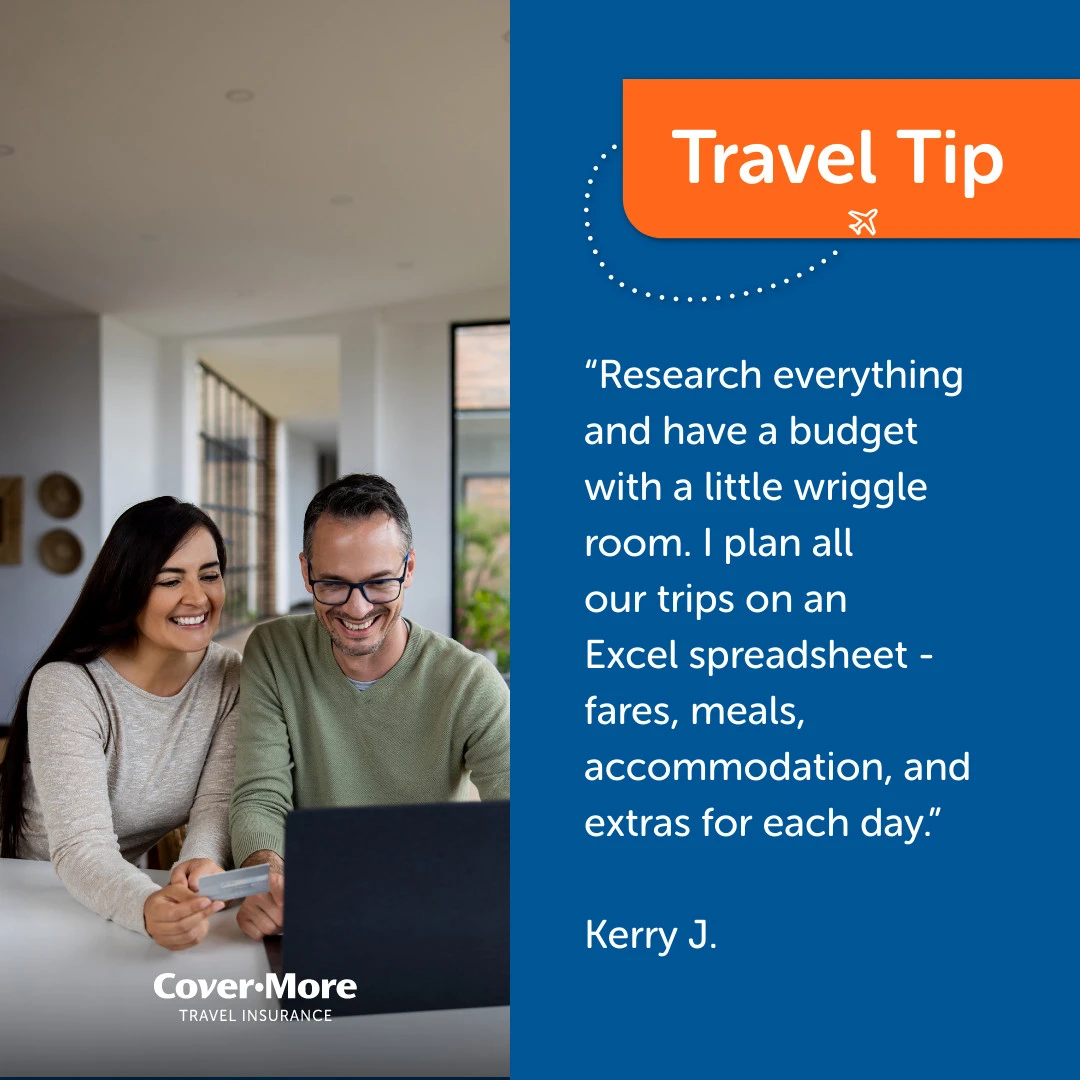
Travel budget tip #2:
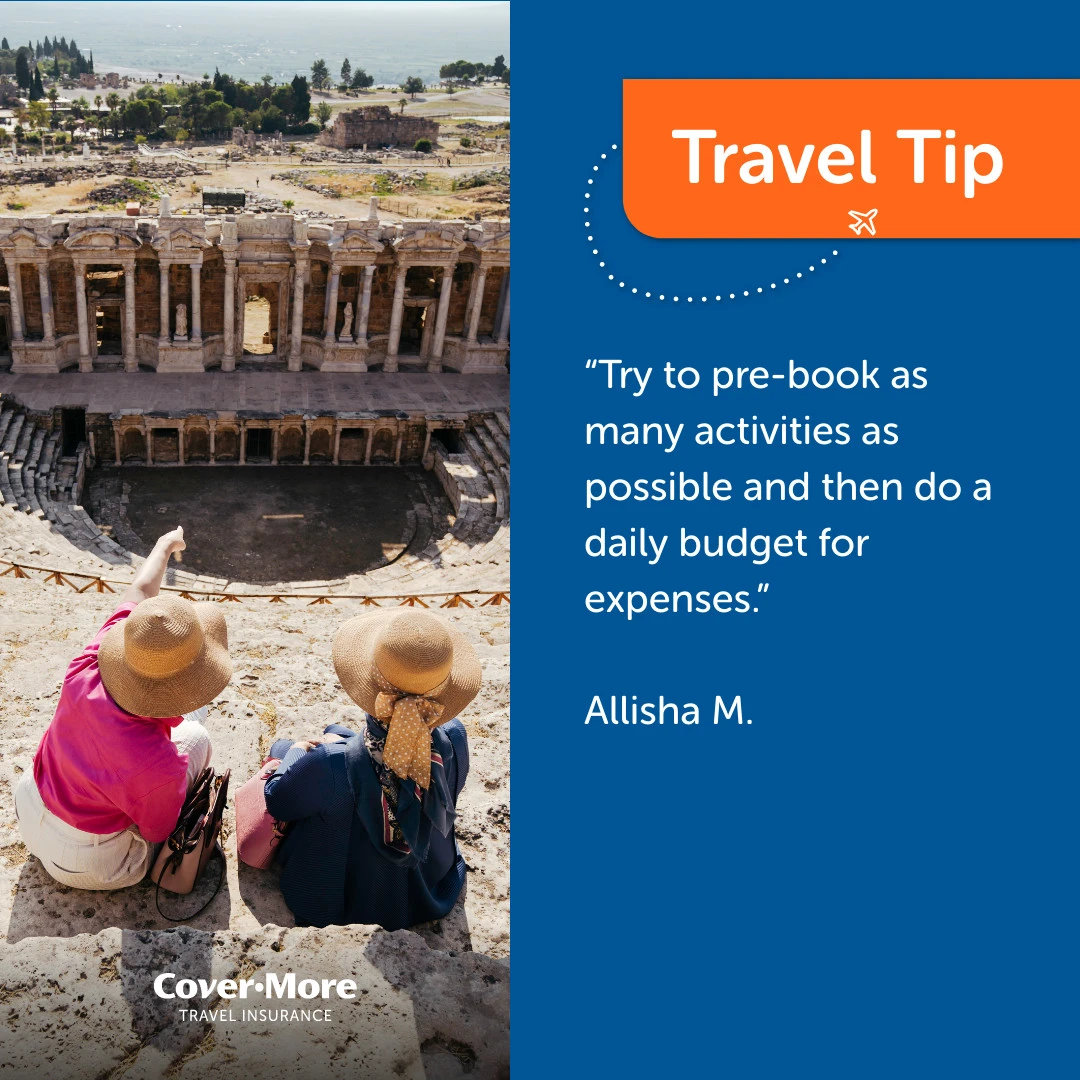
Travel budget tip #3:
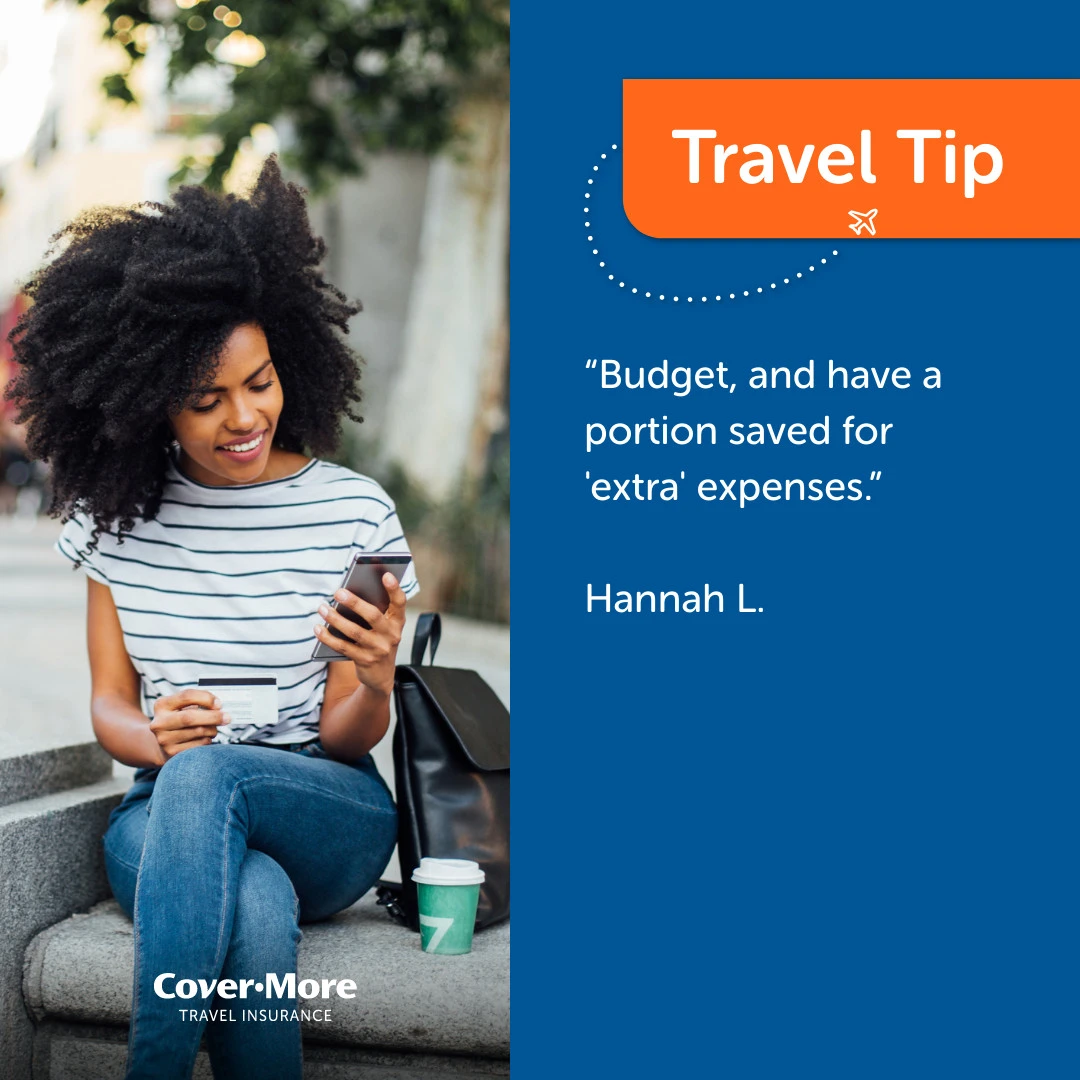
Travel budget tip #4:
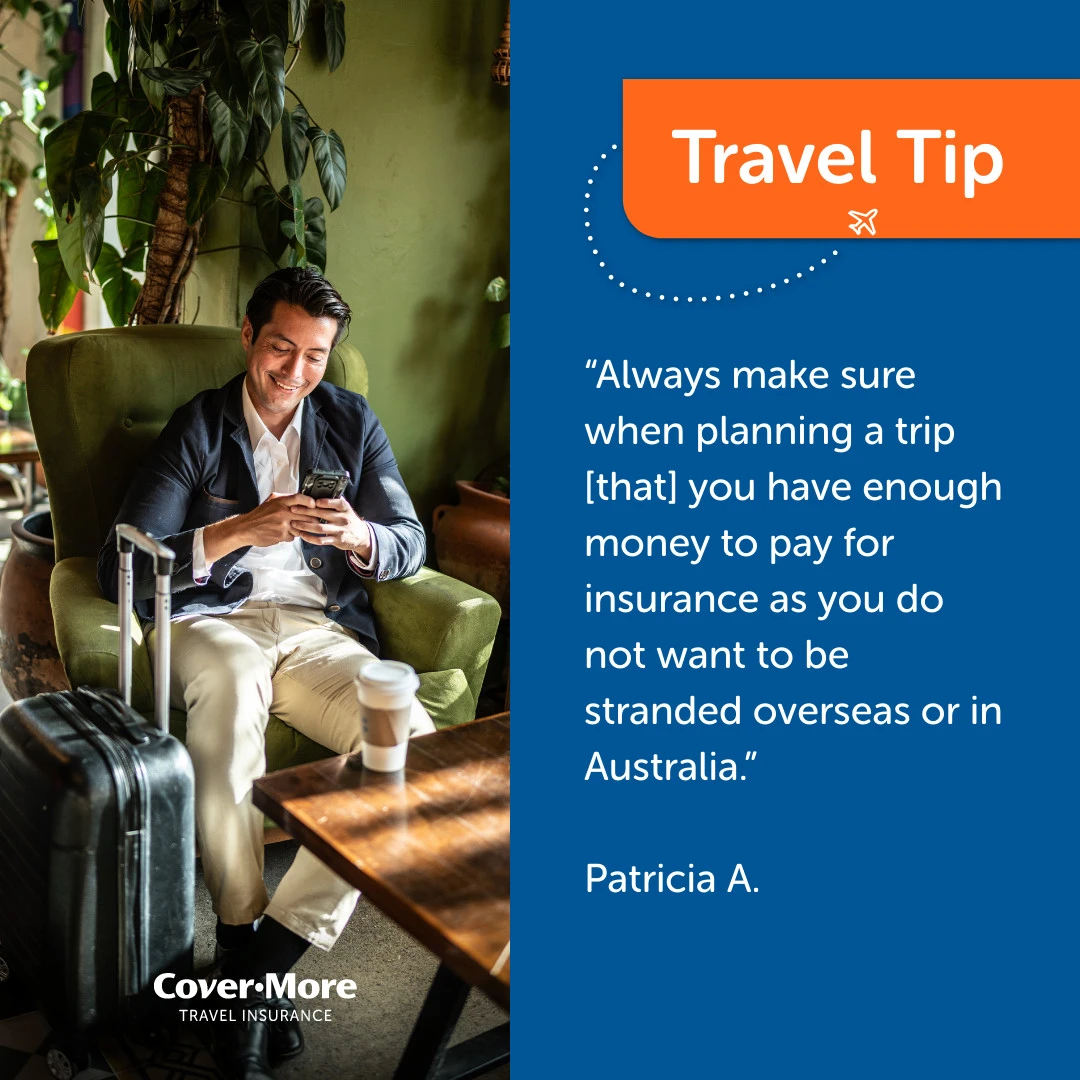
Source: Getty
Travel saving tip: Make a plan to save – and commit to it
Wondering how to save for your trip? If you love travelling – and are excited about your upcoming trip – it’s worth committing to saving for your holiday in the weeks and months leading up to it.
You could set yourself weekly or monthly saving goals using the travel budget you’ve created with your travel costs, and open up a holiday savings account to keep you on track. Yes, you may have to give up some items to ensure you’re saving enough for your holiday, but it’ll be worth it once you’re on your trip.
Here, our travel community reveals the tips that may help you cut down on day-to-day living expenses and increase how much you save in the lead-up to your trip.
Travel planning tip #1:
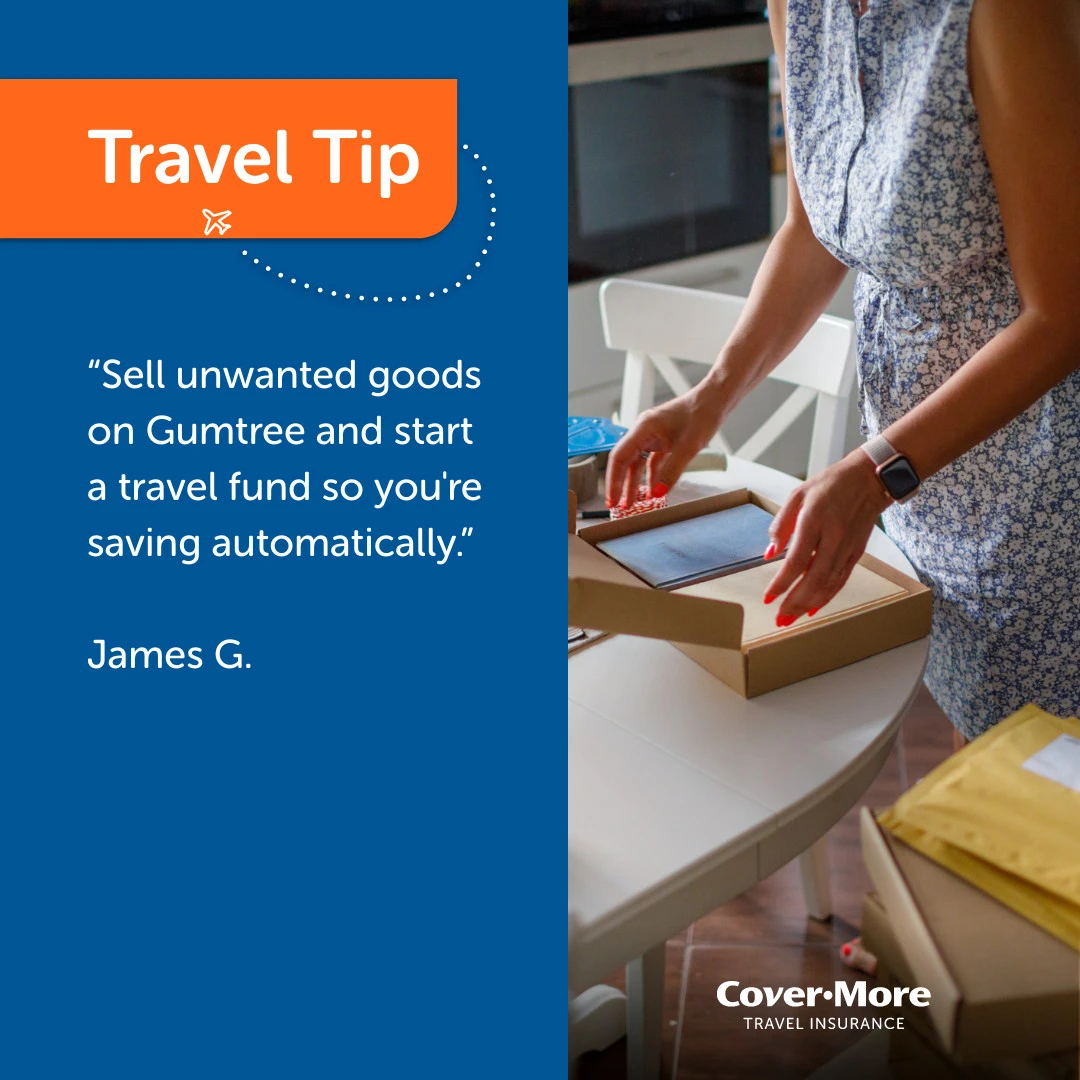
Travel planning tip #2:
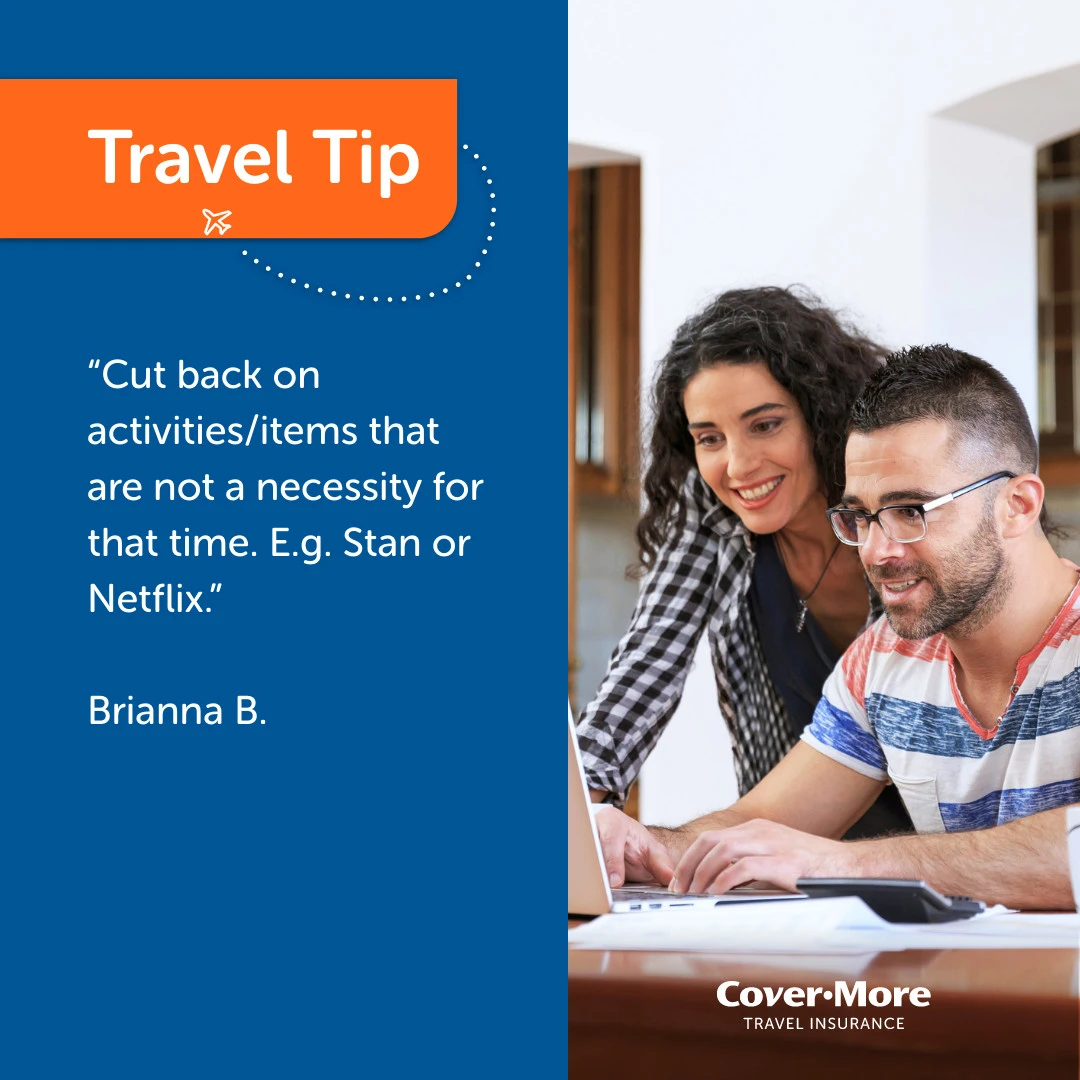
Travel planning tip #3:
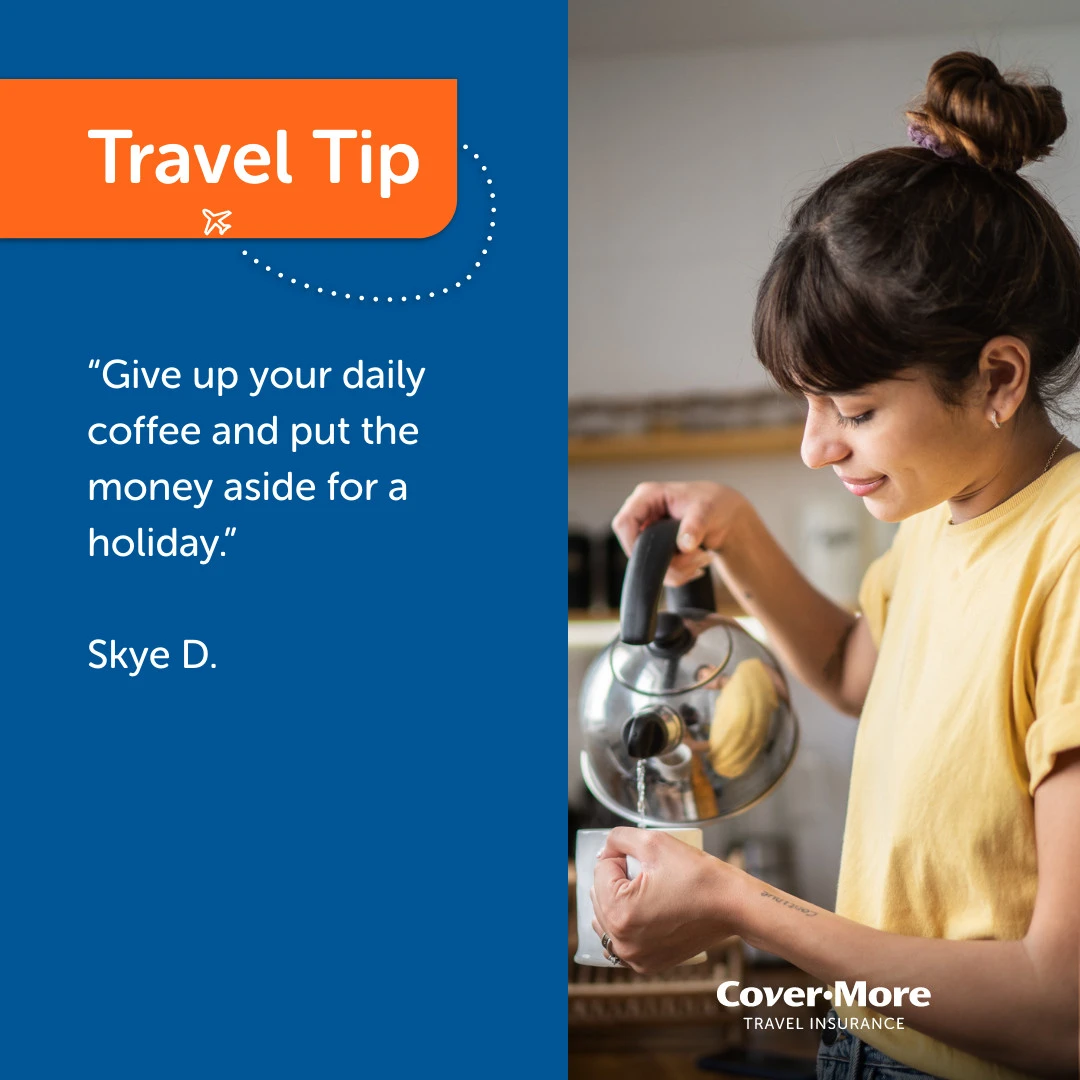
Travel planning tip #4:
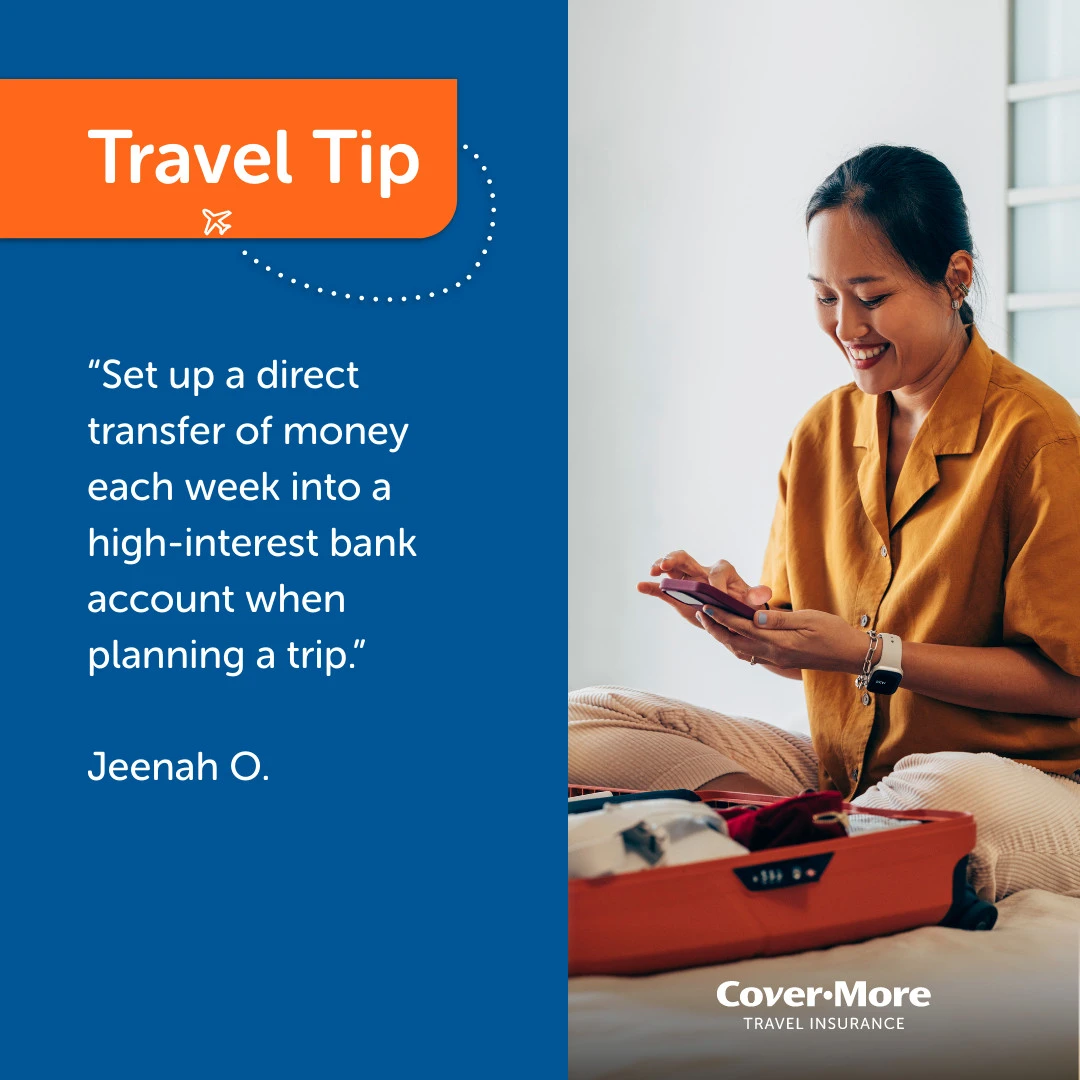
Source: Getty
Travel saving tip: Lean into smart saving hacks
Once you’ve figured out your plan on how to save for your holiday, it’s time to think of clever hacks that help you save even more before you’ve left home and while you’re on your trip.
By being thrifty with your spending when booking or purchasing your travel necessities, you’ll hopefully be able to make further savings, stretch your funds further, and maybe have a little left in your travel savings account for another trip.
When we asked our travel community for their best tips on saving on travel costs, they shared many smart holiday saving hacks too.
Here, we reveal some of the best ones, which may help you save enough to treat yourself to a few extra experiences or souvenirs during your travels – or maybe even extend your trip by a day or two.
Travel smart spending tip #1:
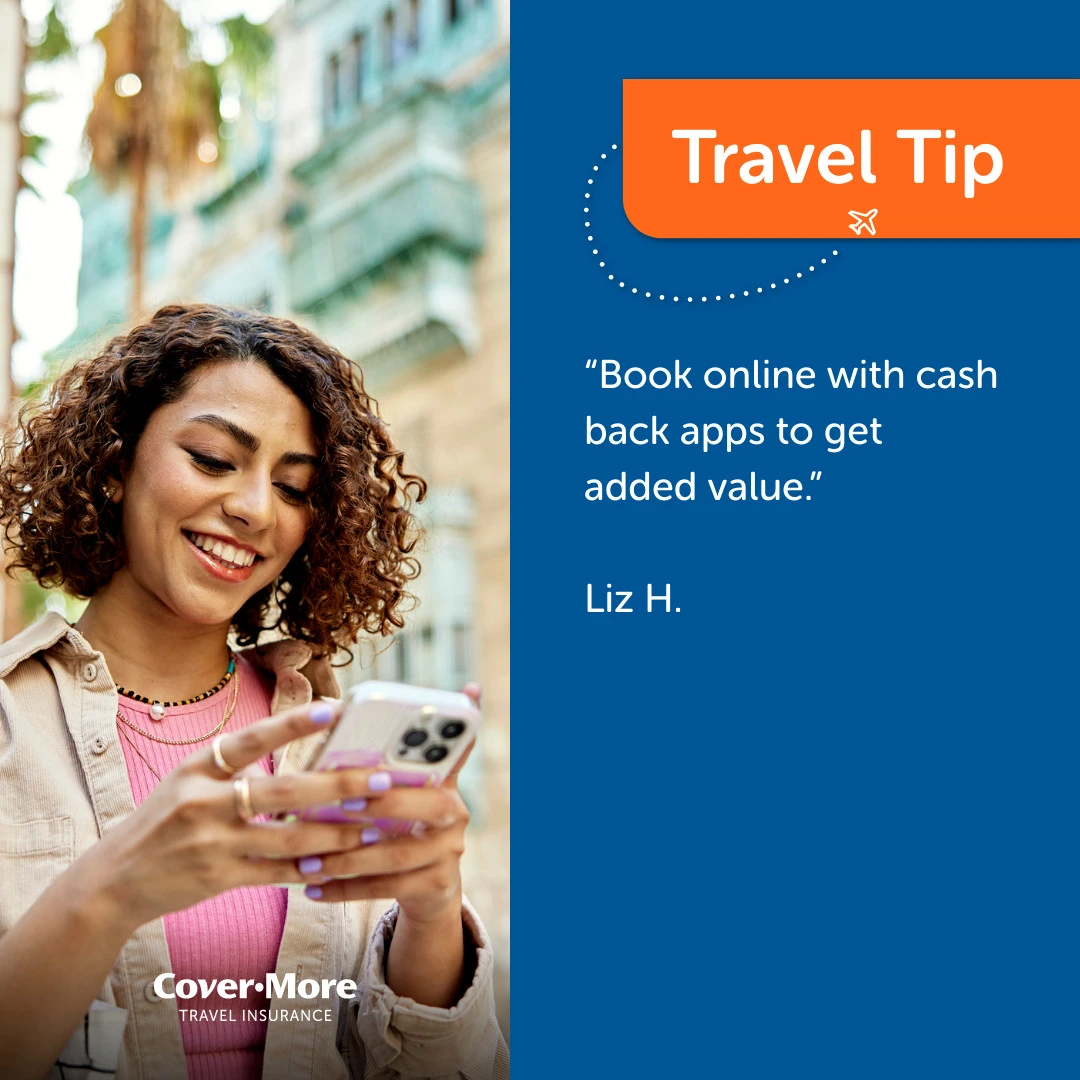
Travel smart spending tip #2:
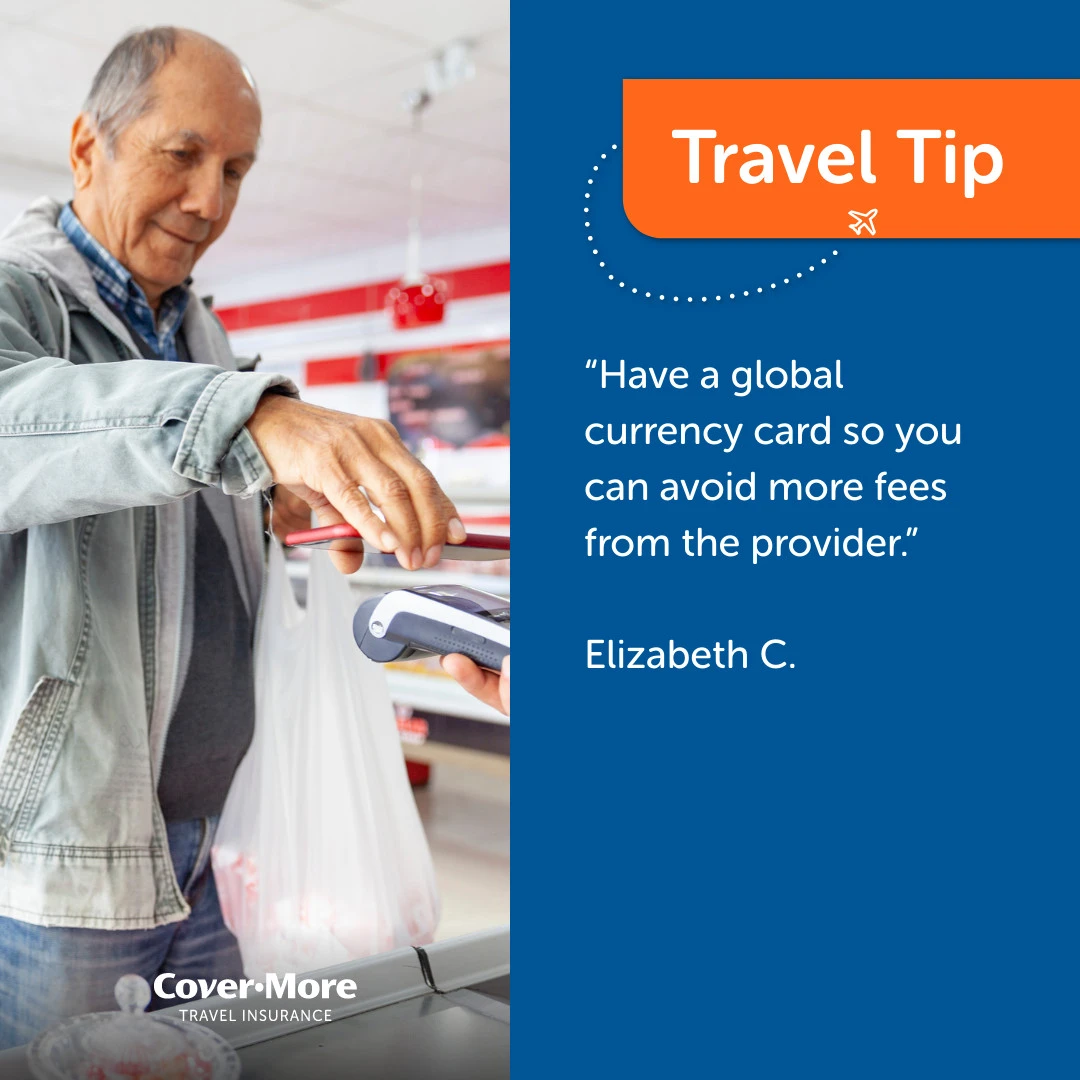
Travel smart spending tip #3:

Travel smart spending tip #4:

Source: Getty
Travel saving tip: Be savvy with accommodation
Thinking outside the box when it comes to your accommodation-related travel costs can really help you rein in your spending. Your accommodation will likely account for a large chunk of your total spend, so the less you need to pay for accommodation, the less you need to save for your trip.
Importantly, stay cautious of online scams when booking your accommodation and other holiday reservations. It’s wise to think twice about using non-reputable websites when booking, even if they offer unmatched deals.
Keep reading to discover some of our travel community’s top tips on finding budget-friendly accommodation. Hopefully, their tips can help you book accommodation that suits your budget and enhances your travel experience too.
Travel accommodation tip #1:
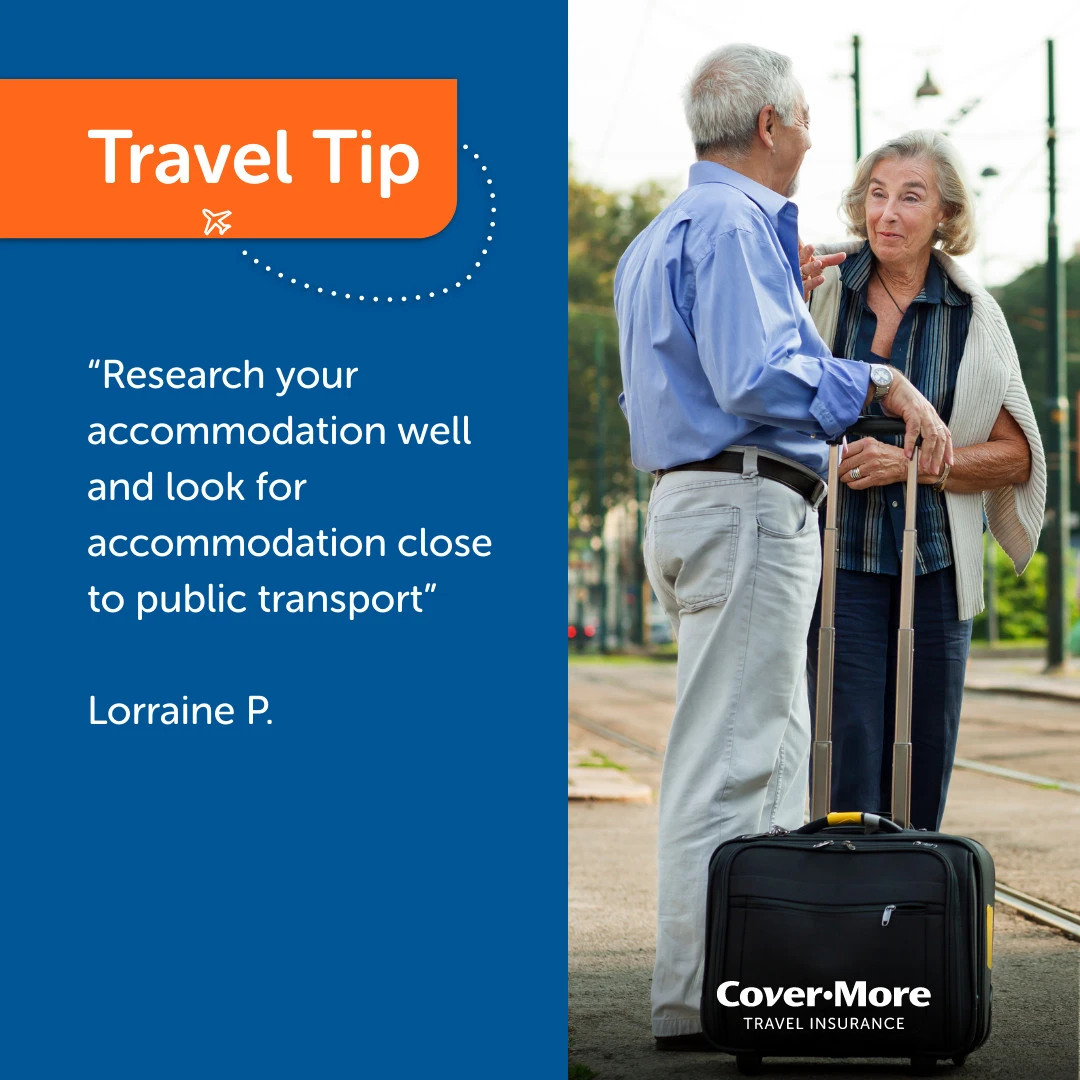
Travel accommodation tip #2:

Travel accommodation tip #3:
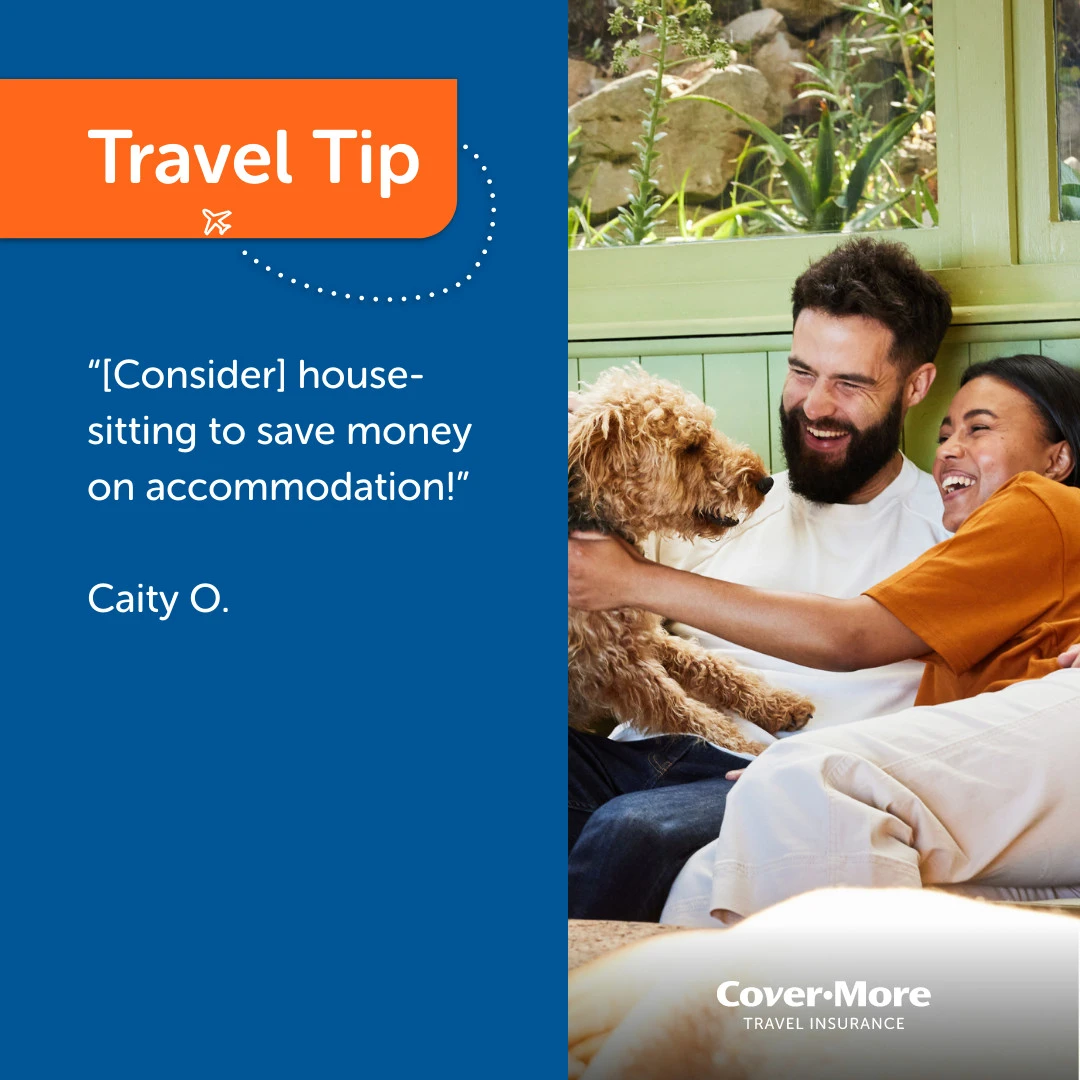
Travel accommodation #4:
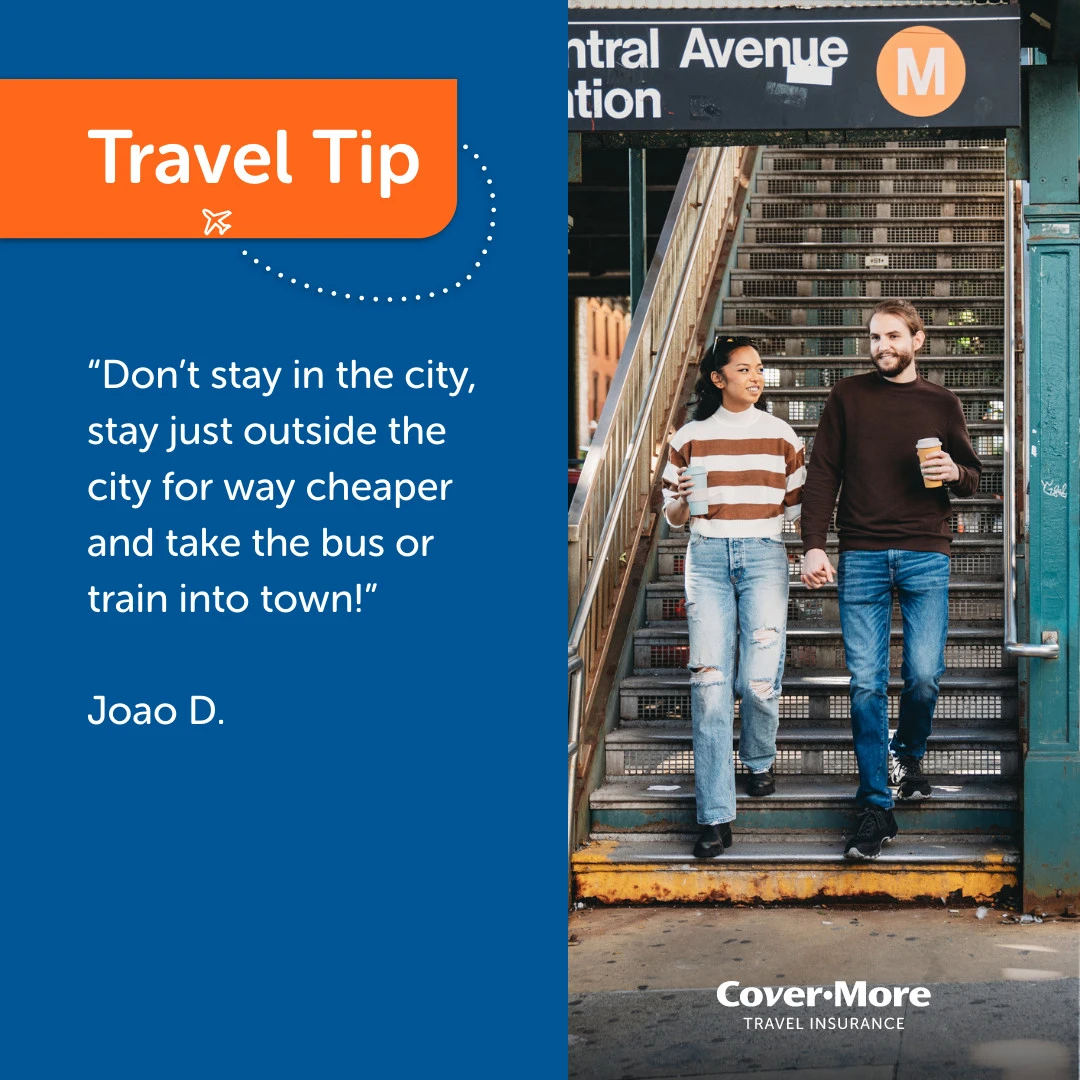
Source: Getty
Travel saving tip: Eat like a local to reduce costs
There’s no doubt about it; eating at restaurants daily while on your trip can really put a dent in your holiday savings account.
Trying your destination’s culinary specialities can be non-negotiable for lovers of international cuisine, but there are ways to do this without breaking the bank.
If you've spent months saving for a holiday, it's likely you want to make your travel funds stretch as far out as possible. The good news is this: our travel community has some great tips for eating well on a budget.
For example, embracing local food culture by sticking to local eateries can help you reduce travel costs; as can purchasing unique local foods and ingredients at a grocery store, rather than eating at a restaurant for every meal.
Here are four of our favourite tips from our community of avid travellers, which may help you save money while still tasting the very best of your travel destination – just like the locals do.
Travel meals tip #1:

Travel meals tip #2:
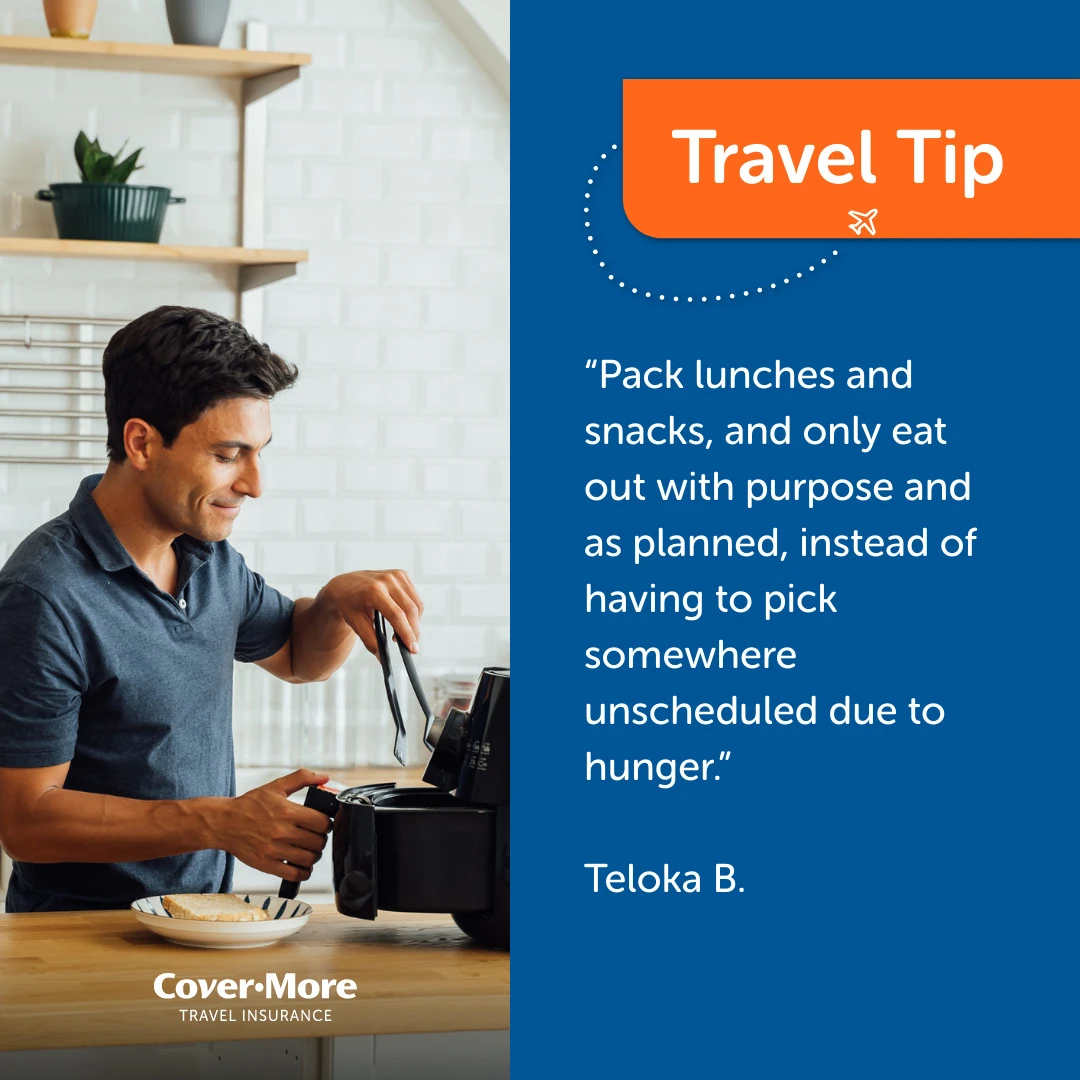
Travel meals tip #3:
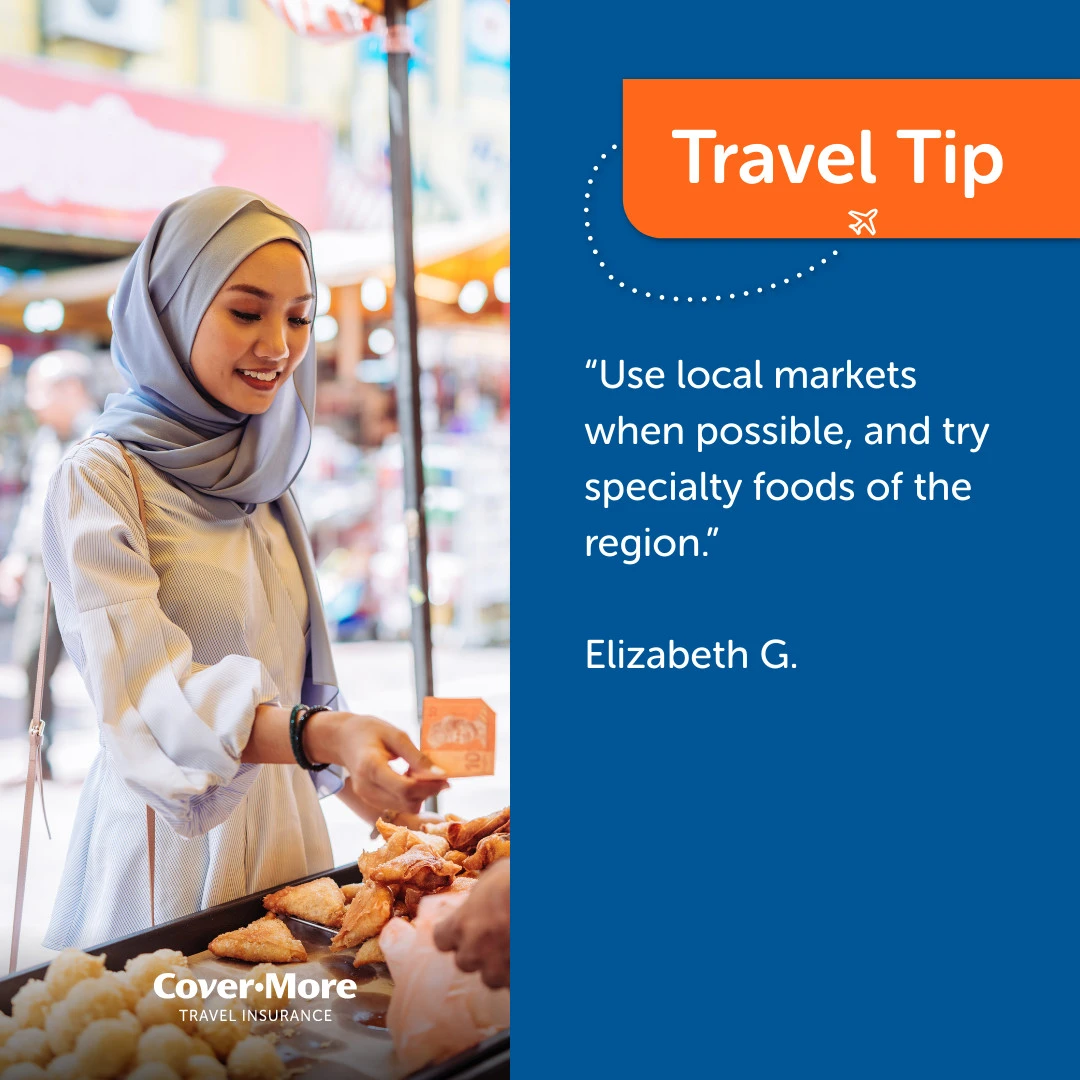
Travel meals tip #4:
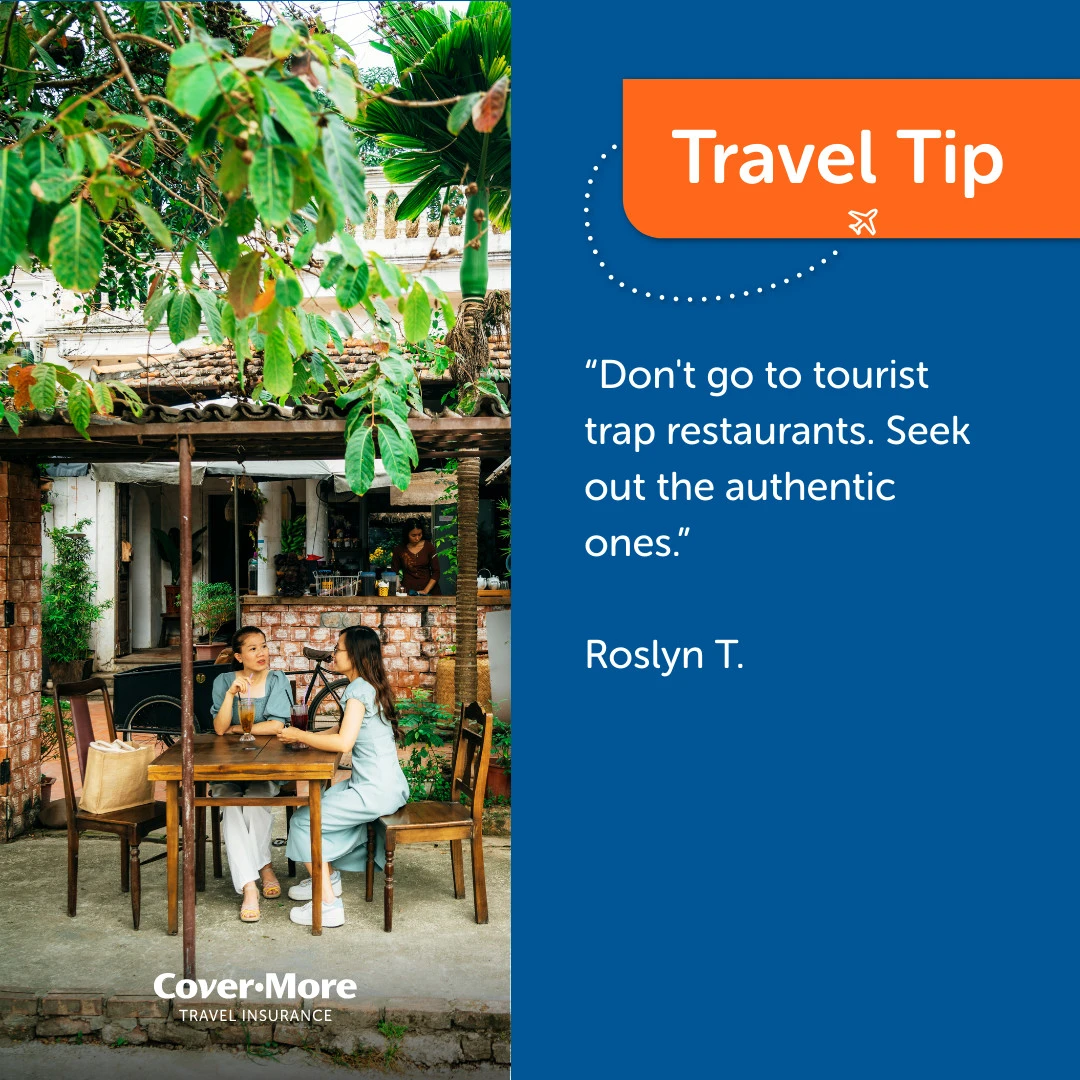
Source: Getty
What’s your plan for saving for your holiday and cutting down on travel costs?
Did you find our community’s money-wise tips on how to save for a holiday and manage your funds on-trip helpful?
It’s not every day you get to immerse yourself in new experiences in a foreign place and having to forgo something on your bucket list because of low funds would be such a shame.
If you create a budget and plan how to save for your trip well in advance, lean into smart saving hacks, be savvy with your accommodation spend, and eat like a local to save money, your upcoming travel adventure can be both budget-friendly and memorable in the best way.
Do you have any general travel tips or holiday planning tips you would like to share with us? Submit your travel saving tips here so you can help other Australians travel well, for less.
Want to protect your next trip?
Discover which travel insurance plan suits your trip now.
*The travel tips submitted as part of our Taking Off in 2023 campaign are the reported personal experiences of each individual and are provided for information purposes only. Cover-More does not guarantee or warrant the accuracy, completeness or validity of any of the stories. Any views, opinions, and positions expressed in the submissions and those providing comments are theirs alone and do not necessarily reflect those of Cover-More travel insurance. Travel tip submissions have been edited for grammar, spelling, syntax and punctuation errors only. Any advice provided is general advice only. For more information on Cover-More travel insurance, always read the Combined FSG/PDS and any other policy documentation to make sure that your chosen cover and policy is right for you.